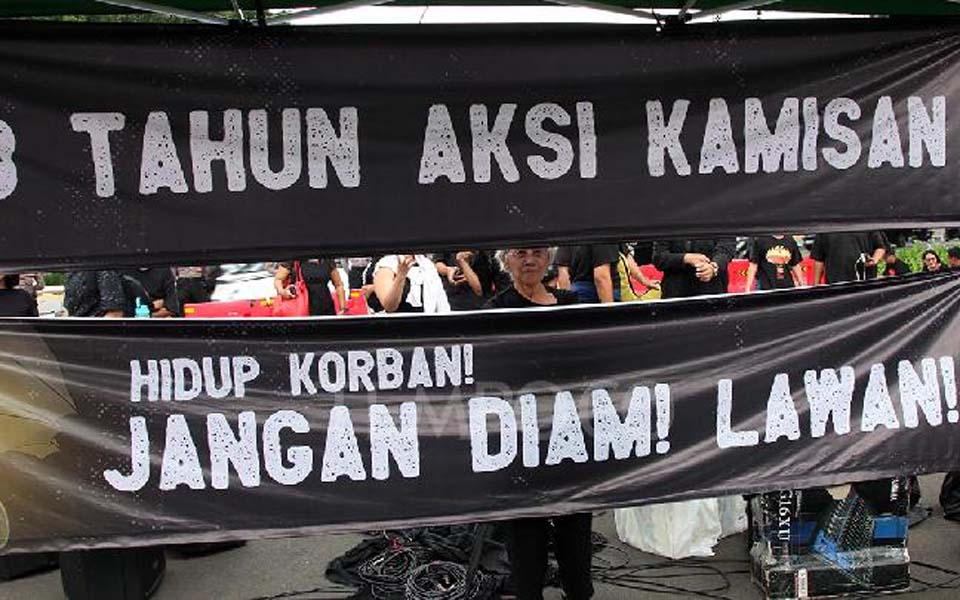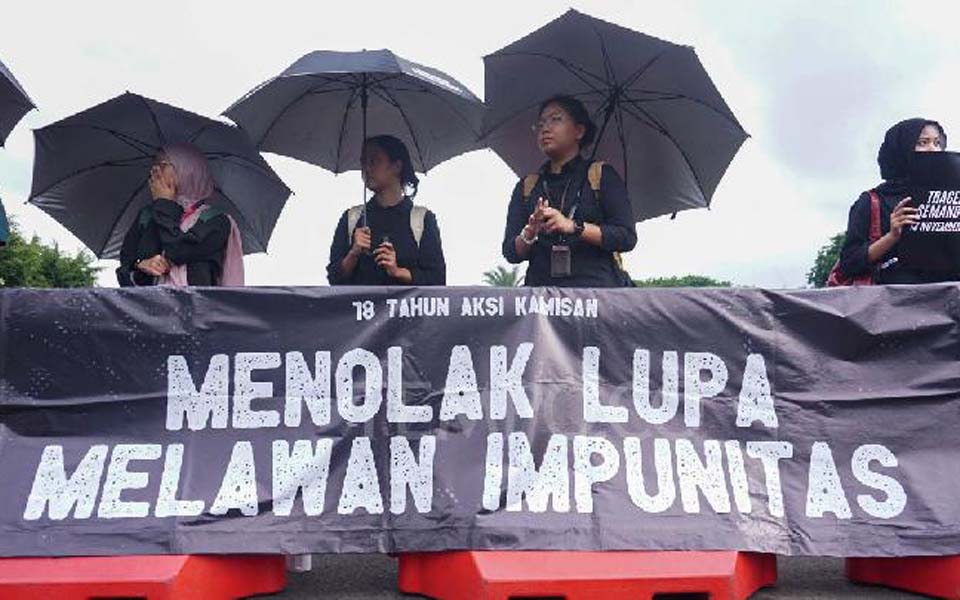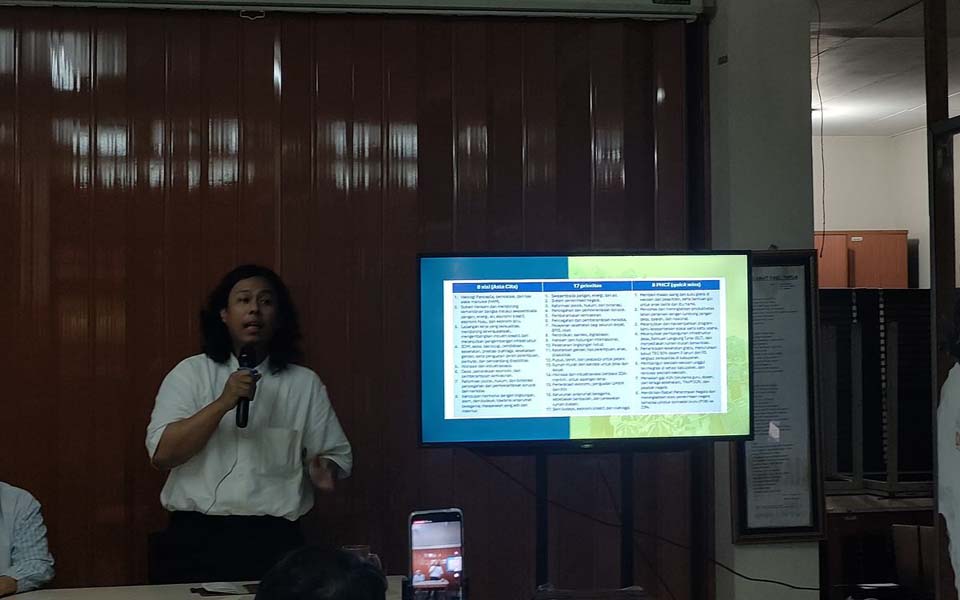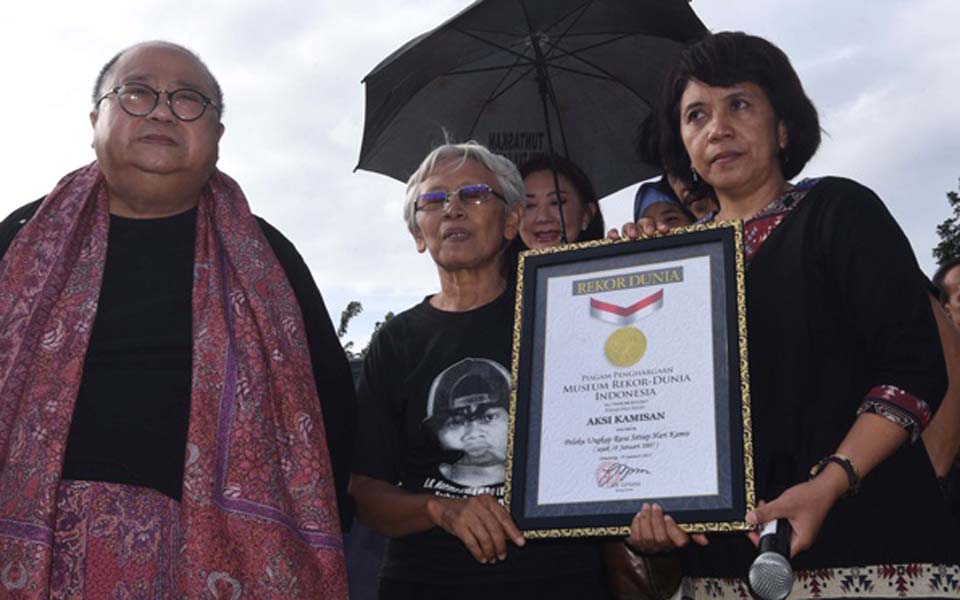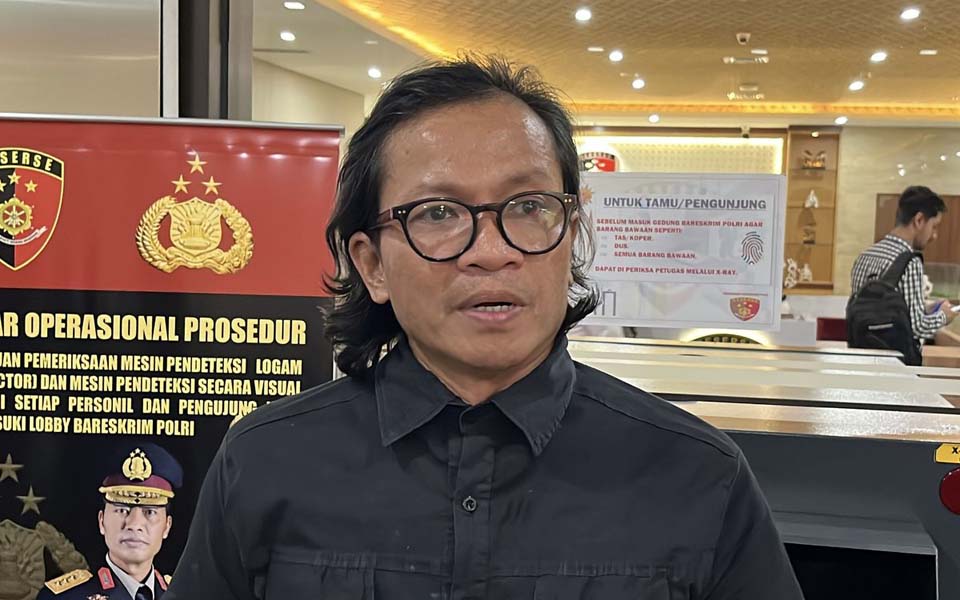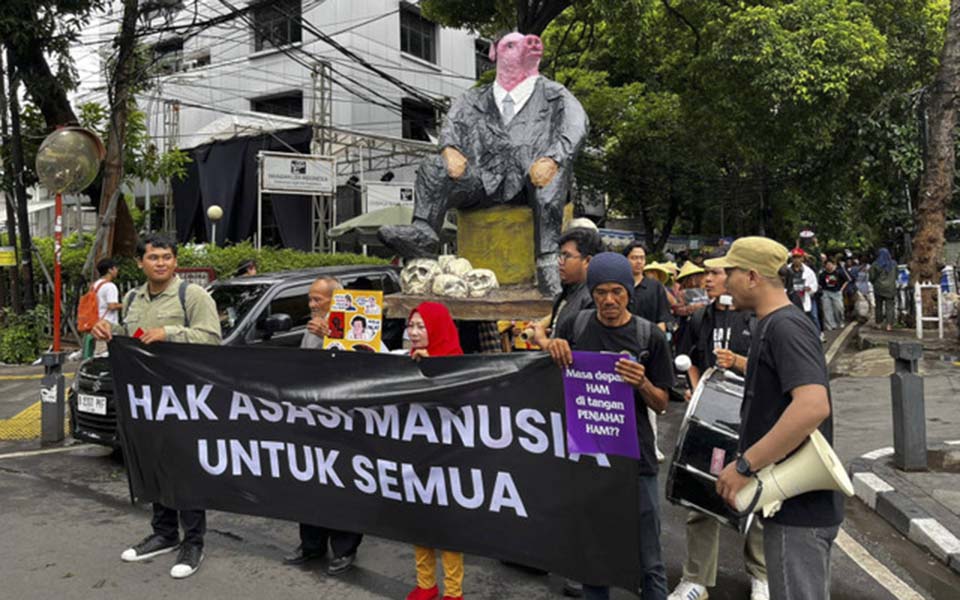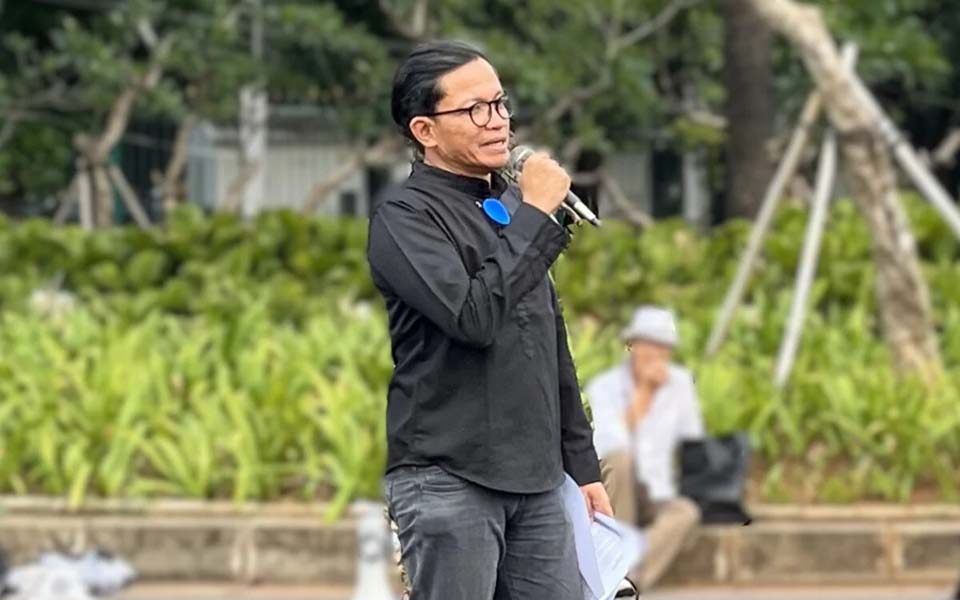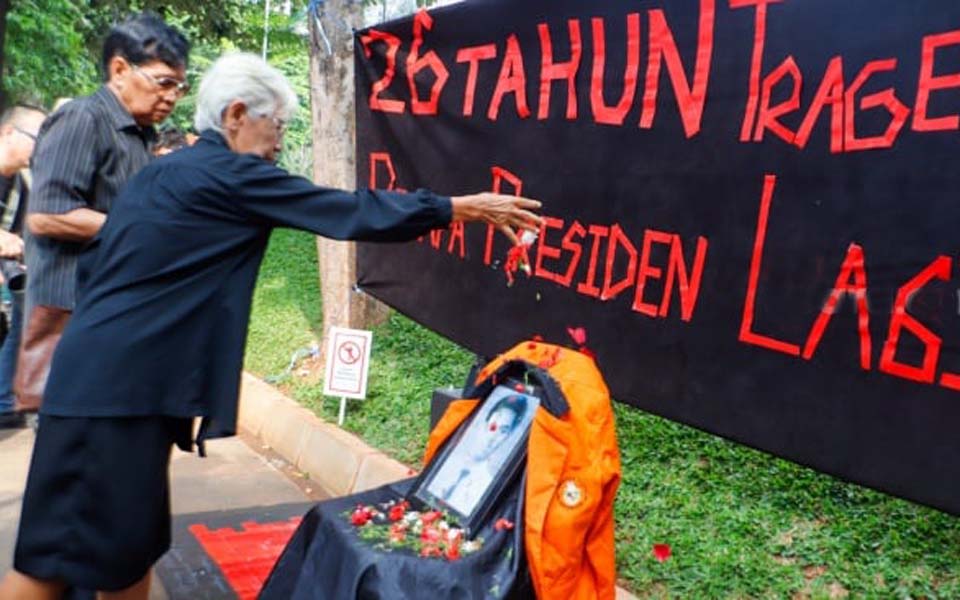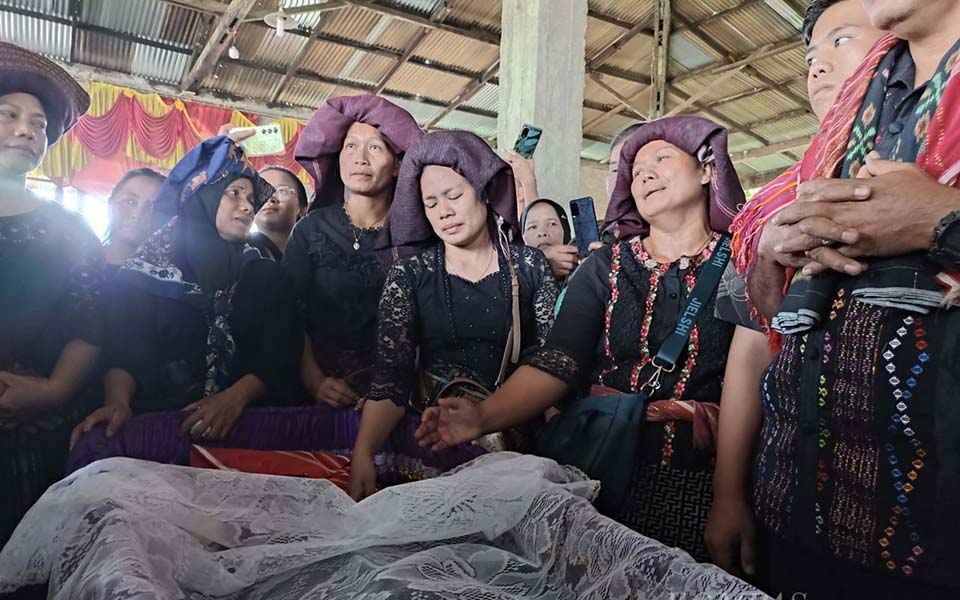Salsabilla Azzahra Octavia, S. Dian Andryanto, Jakarta – Kamisan (Thursday) actions have entered their 18th year. For 18 years, the demands for justice have continued to be voiced by families of victims of human rights violations (HAM) and humanitarian activists every Thursday in front of the State Palace in Jakarta.
"Kamisan actions in front of the Palace have continued amid silence in the halls of justice. During the 18 years the rulers and the highest decision makers who live in front of the Palace continue to be mute and deaf to the sweat of our struggle, the families of victims. Only lying promises and betrayals have been presented. We will continue to exist, do not remain silent. Resist!", Kamisan activists Suciwati told Tempo.co on Wednesday January 15.
Suciwati, who is the wife of renowned human rights defender Munir Said Thalib who was poisoned on a flight to the Netherlands in 2004, has continued to demand justice for her husband's death.
18 years of fighting impunity
The consistency of the Kamisan actions being held in front of the State Palace not only illustrates their hope for justice for the victims, but also the failure of the government to reveal the truth behind the dark tragedies that haunt the country's journey towards a golden Indonesia.
The Kamisan action on Thursday January 16 was still held as an effort to demand justice for human rights abuses that have been silenced for years. Suciwati, who promoted the Kamisan action on social media, invited all elements of society to unite and fight together on the 18th anniversary of Kamisan actions.
"Let us invite anyone who is in line with these ideals of justice to stand up, raise a black umbrella as a symbol of solidarity and courage", said Suciwati, "it's time for us to close ranks and unite to fight for human rights that should be the right of every citizen".
The 18th anniversary Kamisan action took up the slogan Refuse to Forget, Resist Impunity. Impunity was the theme taken up to commemorate the 18th anniversary of Kamisan actions. This theme comes from the false promises and betrayals that have been openly made by the government, one of which was through the ratification of Prabowo Subianto, who is said to have committed human rights violations, as the 8th president of Indonesia.
The practice of impunity under the Indonesian government regime was apparent in the rejection by the Jakarta State Administrative Court (PTUN) which rejected a Civil Society Coalition Against Impunity lawsuit against former President Joko "Jokowi" Widodo for issuing Presidential Decree (Keppres) Number 13/TNI/Year 2024 which regulated the granting of an honorary four-star general rank to Prabowo.
"With the panel of judges' statement that there has been no criminal verdict of human rights violations, which in this case it shows that Prabowo Subianto has never been found guilty of the 1997-98 forced disappearances [of pro-democracy activists]", said Commission for Missing Persons and Victims of Violence (Kontras) impunity monitoring division head Jane Rosalina said last year on Thursday November 7, 2024.
The legal ruling not to take action against Prabowo as the perpetrator of human rights violations has injured the hopes of the families of the victims of the abductions and murders who have fought for justice at the Kamisan actions. So until the day comes when the court takes action against the perpetrators of the crime, the raising of black umbrellas at Kamisan actions will continue to be carried out.
Misuse of power through impunity
As reported on the Institute for Study and Advocacy website, impunity is a fact that provides freedom or exemptions from prosecution, punishment and losses for someone who has committed a human rights violation.
Impunity is usually granted due to the government's refusal or failure to take or pursue legal action against perpetrators of crimes. Impunity actually has a negative connotation. Impunity can also be done by granting forgiveness for sins committed by government officials.
Impunity is enshrined in Law Number 9/2016, Law Number 11/2016, and Article 50 of the Criminal Code (KUHP) which reads, "A person who commits acts to implement the provisions of the law, cannot be convicted." Meanwhile, Article 51 Paragraph 1 of the KUHP explains, "That whosoever commits an act in order to carry out an order given by an authorised authority, then that person cannot be convicted".
Impunity under laws and regulations do not freely legalise someone from being legally indicted. However, the granting of this right aims to provide legal protection to officials who are carrying out their authority. This certainly gives rise to a loop hole for the abuse of power, as has been done with officials who are perpetrators of gross past human rights violations.
– Ervana Trikarinaputri and Muhammad Syaifulloh contributed to writing this article.
[Translated by James Balowski. The original title of the article was "Arti Impunitas yang Disuarakan dalam 18 Tahun Aksi Kamisan".]
Source: https://www.tempo.co/politik/arti-impunitas-yang-disuarakan-dalam-18-tahun-aksi-kamisan-1195175





